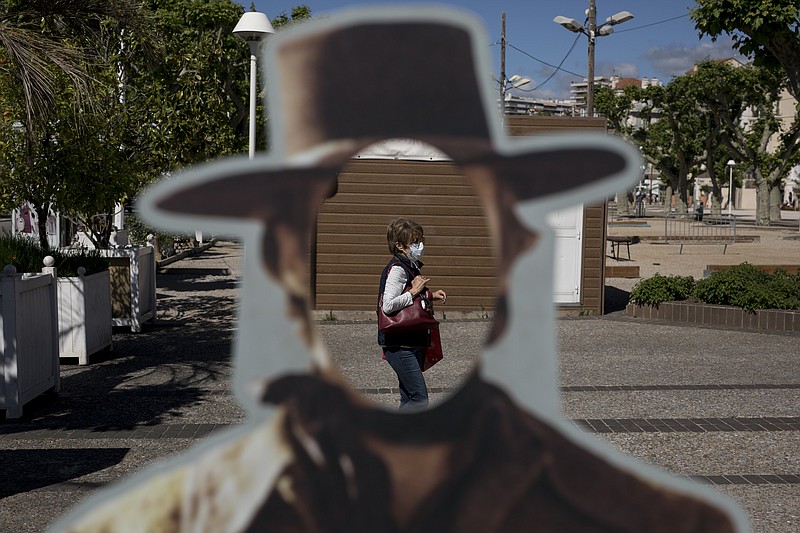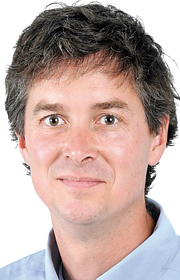Why aren't we all wearing masks?
"The University of Washington predicted that the U.S. could prevent about 33,000 coronavirus deaths by October if 95% of the population wore face masks in public," reports Business Insider.
"A national mask mandate could save the US economy $1 trillion," reports Forbes.
As of Friday, Hong Kong - a nation of 7.5 million - had 1,248 cases and seven deaths. Total.
Hamilton County - roughly 20 times smaller than Hong Kong - had 2,660 confirmed cases and 33 deaths.
What would have to change in Hamilton County for, say, 95 percent of us to willingly and gladly wear face masks in public?
From the beginning, I believed there would be no need for a mandate.
After all, most of us are good, generous, intelligent. We try to do what's best for ourselves and our neighbors.
A pandemic? Hamilton County would lead the state in voluntary mask wearing.
"We've always been hopeful that people would comply," said county mayor Jim Coppinger.
That hasn't happened.
Local cases are soaring. The U.S. has more coronavirus cases than any country on earth, with deaths totaling, as one friend said, "the equivalent of 40 pairs of Twin Towers."
And most of you still aren't wearing masks.
Some on the Left explain no-mask people in a basket-of-deplorables kind of way: ignorant, selfish, anti-science.
But I know many of you.
You're good, generous, intelligent. You try to do what's best for yourself and your neighbors.
But you still don't wear a mask.
For so long, I couldn't square it. Wearing a mask is like helping grandma across the street. It's patriotic. It's responsible.
"Refusing to wear a mask is like driving drunk," Nicholas Kristof wrote in the New York Times.
But you do walk grandma across the street. You are patriotic. You don't drive drunk.
But you won't wear a mask.
It doesn't add up.
Then, I saw an ad for "Survivor."
And things began to make sense.
The reality TV show, in its 20th season, follows a certain script.
Tribes are formed.
Conflict abounds.
Aggression and cunning win the day. Not communities. Not lovingkindness.
Imagine American society like reality TV. Like "Survivor." The stage is constantly set for conflict. And tribalism. And a winners-losers relationship.
Sure, we have our daily lives: work, store, Netflix, laundry, rinse, repeat.
Yet in the background, larger forces discourage cooperation, wisdom or love.
And encourage hostility, competition and isolation.
Our economy runs on a hamster wheel of desire: want, buy, work, want, buy, work.
Our 24/7 media never stops its noise: fear more, want more, fear more, want more.
Our political system continues to refuse the currency of kindness, operating instead in a lowball tribalism that will never solve problems.
Our entertainment industry is often dumbed-down and morally poor.
So when a pandemic comes, it becomes political and divisive because politics and division are the scripts we're given.
When everything is politically charged, then nothing is neutral. Our response to the coronavirus is tied to our view of the media, politics, science, personal liberty.
A mask becomes more than a mask.
The script demands it.
"For many, this is the least control they have ever felt in their lives," my friend added.
In a chaotic time, is refusing a mask a way of staying in control?
Is refusing a mask a way of refusing vulnerability or weakness? Especially among men?
Is refusing a mask - a literal and symbolic covering of one's identity - a way of protecting further loss of self?
I used to be angry at people who refused masks.
Now, I'm beginning to see it as an attempt to resist what Emma Goldman called the "whole complex of authority and institutional domination which strangles life."
I am beginning to see how mask-rejection can feel like a moral stand.
Against the noise.
Against the machine.
Against the deception.
Against smug politicians and media. (If you wear a mask, does it feel like Nancy Pelosi wins?)
We just celebrated the Fourth of July.
On July the Fifth, we must critically ask: how truly free are we?
Are we free from anger or anxiety? Free from want and desire? Free from being controlled by others? From reactivity?
Are we free enough to get off the island?
I will continue to wear a mask - whether mandated or not. I deeply wish you would, too.
But I'm beginning to see why you won't.
David Cook writes a Sunday column and can be reached at dcook@timesfreepress.com.

